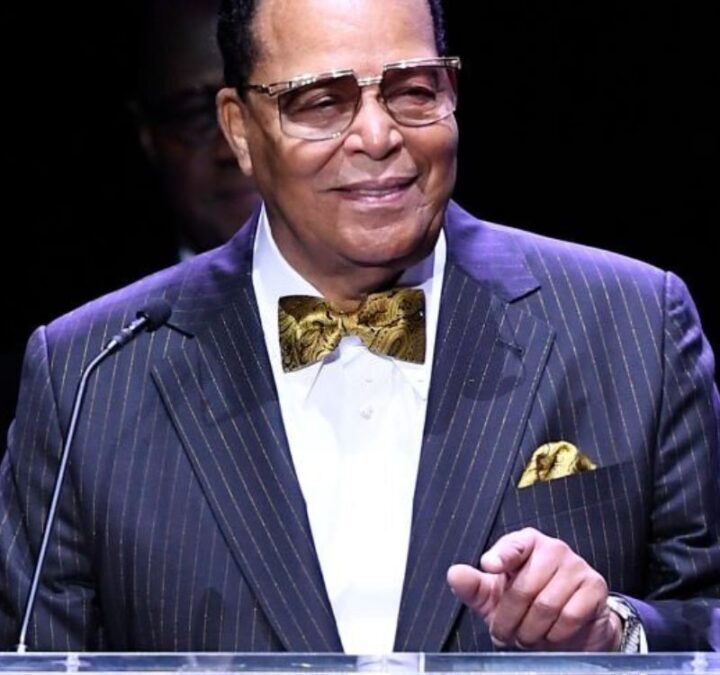In the landscape of the African-American civil rights movement, Louis Farrakhan‘s name resonates with power. As a prominent leader of the Nation of Islam, Farrakhan captivated crowds and stirred controversy throughout his life. In this biography, we delve into the fascinating story of this charismatic man who inspired millions and played a major role in the American socio-political landscape.
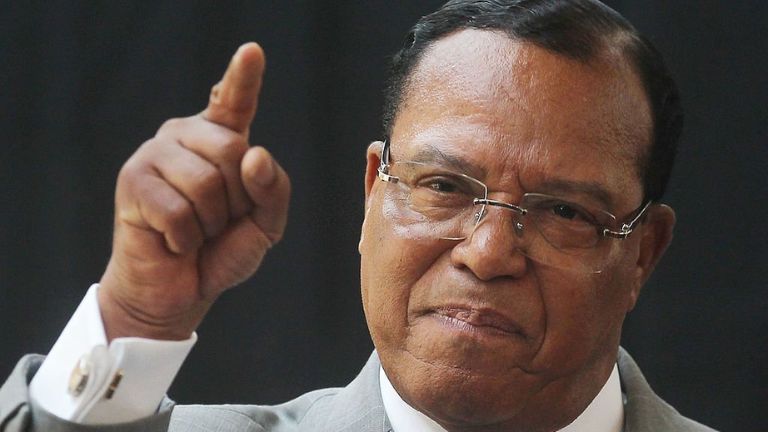
The beginnings of Louis Farrakhan
Born on May 11, 1933 in Bronx, New York, Louis Eugene Walcott, later known as Louis Farrakhan, grew up in a working-class family. From an early age, he showed impressive oratory skills and developed a deep interest in religion. His journey led him to meet Malcolm X, who became his mentor and guided him towards the Nation of Islam.
The Nation of Islam and the rise of Farrakhan
Under the influence of Malcolm X, Farrakhan joined the Nation of Islam in 1955. The organization promoted a message of black pride, racial separation and resistance against oppression. With his charisma and eloquence, Farrakhan quickly rose through the ranks of the organization and became an influential minister.

Farrakhan’s powerful speeches
One of the most striking aspects of Farrakhan’s career is his mastery of the art of eloquence. His passionate, incisive speeches have galvanized crowds and attracted media attention. He addresses issues such as the plight of African-Americans, social injustice and the need for solidarity within the black community.
The Farrakhan controversy
Throughout his career, Farrakhan has been surrounded by controversy. Some of his statements have been perceived as anti-Semitic and homophobic, prompting criticism and condemnation. Despite this, he retains a fervent core of support among his supporters, who see him as a defender of the rights of African-Americans.
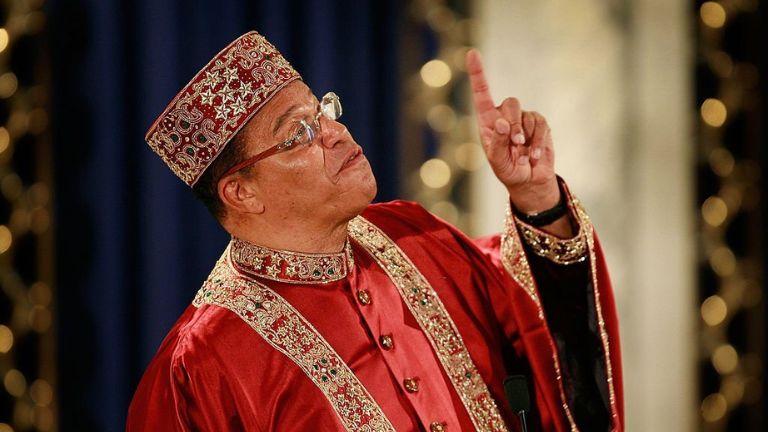
Farrakhan’s influence
Over the decades, Farrakhan has been a key player in the civil rights movement, influencing many. He organized mass rallies, such as the famous « Million Man March » in 1995, which attracted national attention and called for unity and autonomy for African-Americans.
Louis Farrakhan’s legacy
As leader of the Nation of Islam, Farrakhan left a complex legacy. Although his controversial statements have tarnished his image, he remains an iconic figure in the African-American movement for his contribution to the fight against racial injustice and his advocacy of economic autonomy for African-Americans. His influence continues to be felt in many fields, including politics, religion and culture.
Political and social commitment
In addition to his role within the Nation of Islam, Farrakhan has also been an active political player. He endorsed several candidates for the U.S. presidential election, including Jesse Jackson in 1984 and 1988. He also called for economic autonomy for the black community, and encouraged education, business ownership and cooperation among African-Americans.
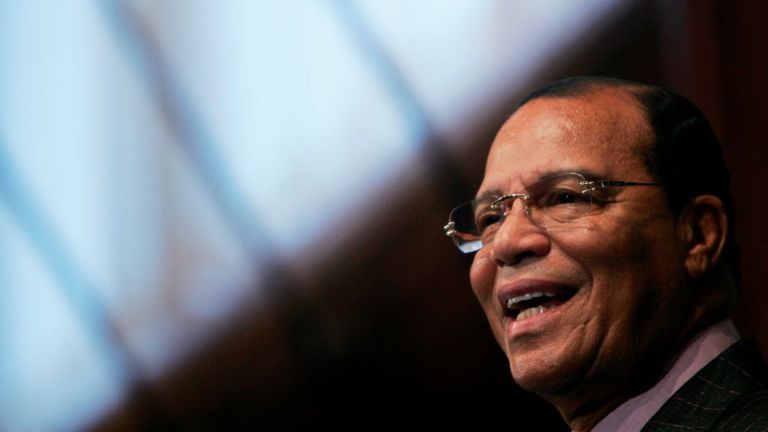
Leadership after Malcolm X
After the assassination of Malcolm X in 1965, Farrakhan was deeply affected by the loss of his mentor and friend. This strengthened his dedication to the Nation of Islam and inspired him to take on an even stronger leadership position. He played a crucial role in restructuring and stabilizing the organization after this tumultuous period.
Relations with other communities
Farrakhan’s positions have often been a source of controversy and tension with other communities. His statements criticizing Jews and the LGBTQ community have been widely criticized and have fueled debates about freedom of expression and the line between political criticism and anti-Semitism. These controversies have led to boycotts and calls for his exclusion from the public arena.

The spiritual aspects of the Nation of Islam
The Nation of Islam under Farrakhan’s leadership has a strong emphasis on religion and spirituality. Islam plays a central role in the organization, which advocates a specific interpretation of the faith. Nation of Islam members follow distinct religious practices and seek to embody the principles of Islam in their daily lives.
Farrakhan’s controversial legacy
Louis Farrakhan’s legacy is complex and polarized. While some see him as a visionary and charismatic leader who championed the rights and dignity of African-Americans, others condemn him for his controversial statements and judge his discourse to be divisive rather than unifying. It’s important to examine his impact in a broader context and recognize the many facets of his legacy.
In conclusion, Louis Farrakhan has left his mark on American history as a charismatic leader of the Nation of Islam. His eloquence, political commitment and advocacy of African-American rights made him an iconic figure in the civil rights movement. However, his controversial statements also drew criticism and condemnation. It is undeniable that Farrakhan played a major role in the fight against racial injustice and influenced many people with his message of black pride and economic empowerment. His impact on the African-American community and his legacy in the civil rights movement are indisputable.
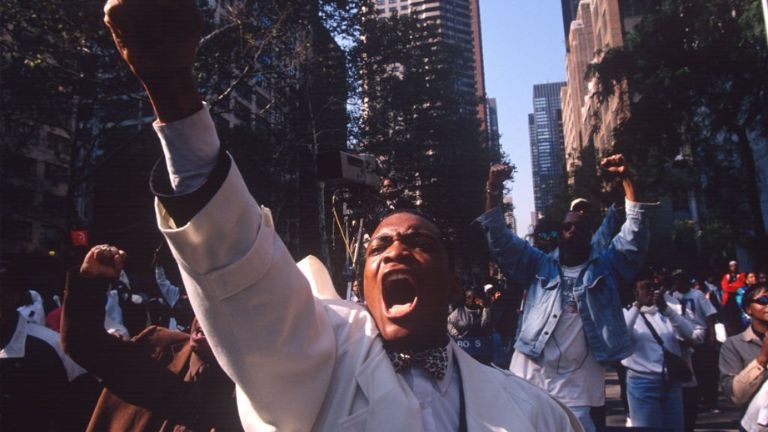
Whether or not you agree with his ideas and statements, there’s no denying that Louis Farrakhan has played a significant role in American history. His journey, from his childhood in the Bronx to his leadership of the Nation of Islam, is a fascinating saga. He has been both celebrated and controversial, sparking intense debate on key issues such as social justice, racial separation and free speech.
Louis Farrakhan’s legacy remains complex and open to interpretation. He inspired millions through his impassioned speeches and his call for African-American autonomy. However, his controversial statements have also fueled controversy and divided opinion.
It’s important to recognize that Louis Farrakhan’s story is that of a man committed to the struggle for equality and dignity for African-Americans. He was a charismatic leader and helped shape the discourse on social justice in the country. He also faced criticism and controversy, which shook his image and legacy.
Ultimately, it’s up to everyone to form their own opinion of Louis Farrakhan and his impact. Whether one agrees or disagrees with him, his role in American history cannot be ignored. Louis Farrakhan’s biography is that of a complex and influential man, whose actions and words continue to resonate to this day.

